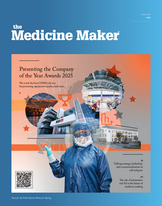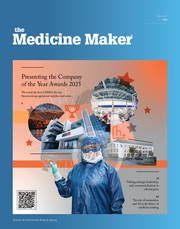The Best of Both Worlds
Academia-industry collaboration doesn’t have to be difficult; we just need to appreciate one another’s differences
Viktoria Gessner, Angelino Doppiu | | 4 min read | Opinion

Scientific endeavor across almost every sector of industry relies on collaboration. Whether it’s the development of a lifesaving new drug or the creation of a novel sustainable reaction pathway for use in drug manufacturing, cooperation often plays a key role. Collaboration between industry and academia is particularly important in a number of industry sectors. By collaborating with academic colleagues, businesses can grow their capabilities, gain access to powerful new technologies, and explore a different kind of creative thinking to what lies within their own four walls. But despite the best intentions by both parties, maintaining positive relationships between academia and industry can be challenging. Here, we briefly outline our top collaboration tips, based on experience from a collaboration between Umicore and Ruhr-Bochum University, Germany, on ligand and catalyst technologies (1).
With such different backgrounds, it’s natural for industry and academia to hold distinct priorities. This can lead to tension, even within tasks as simple as choosing a publishing route for project results; academics may have preferred journals for example! My first piece of advice: do not ignore the differences, acknowledge and embrace them.
Each party will be hoping to derive different benefits from a project and, at any point, unforeseen issues may change priorities for one or both parties. With any collaboration, you must be flexible and understanding. Take the differences in attitudes on board and appreciate that it’s natural to have contrasting concerns and opinions. This type of mindset can reduce tension by ensuring that all communication comes from a place of understanding.
To more practically demonstrate flexibility, companies can allow researchers a level of freedom in the research routes they take. Though it can be tempting for a company to set out exactly what they require, serendipity often plays a role in discovery. By giving universities a broad remit on what they want to investigate – and trusting their expertise – unforeseen innovation can arise. You’ll also be reaping the benefits of what academics tend to do best: create. A flexible approach to rules and guidelines can also be beneficial when it comes to addressing the inevitable changes (and unforeseen challenges) every project faces.
For the duration of an academia-industry relationship, active cooperation is also key. Though the two parties may work together naturally, actively engaging with the relationship allows you to develop a greater level of trust and get more out of the partnership. For example, academics have the opportunity to gain a viewpoint on the current industry landscape, which can be of great value as individuals in positions that normally lack such insight. Academics can also speak at conferences and publish results in peer-reviewed journals, which can accelerate career growth. The industry partner can also offer resources (such as chemicals or lab equipment) relevant to not only the collaboration, but other projects as well. This can go a long way toward establishing trust and faith between the institutions.
Perhaps the top piece of advice that we can give is to consider communication. The foundation of any professional relationship is a strong line of communication – and a lack of it, therefore, is a common cause for relationship breakdown. Without open communication, it’s easy for researchers to choose industrially irrelevant research pathways – but with it, collaborators can foster innovation, improve understanding, and even lead to new research avenues and commercial applications. Only by maintaining strong communication through check-ins and discussions can this potential be accessed.
We recommend maintaining discussions across several platforms – calls, meetings, and emails are a few such examples. You should also aim to communicate regularly; long periods without communication increase the chances that a project will become misaligned on either end. To avoid this, it’s important to define clear goals, targets, and expectations when initially setting out the project. Both parties should know what they’re getting into from the very beginning. And it’s not just about a partnership between two people, or even two research groups; companies should maintain positive relationships with not just researchers, but research institutes as well. Forging well-rounded professional relationships is the key to success in long-term collaboration.
In our view, academia-industry collaboration is a fertile opportunity to drive new product pipelines and bring cutting-edge innovations to market. By combining the expertise of both parties, the best of both worlds can be achieved and your company’s offerings expanded. Furthermore, by maintaining the pillars of cooperation, flexibility, and communication, you can ensure that both sides of the relationship are getting the most out of it.
- Umicore, “Umicore acquires YPhos ligand technology from Ruhr-Bochum University” (2021). Available at: https://bit.ly/3wtMwlm.
Viktoria Gessner, Chair of Inorganic Chemistry at Ruhr-University Bochum
Angelino Doppiu, Global Technology Director at Umicore, Hanau, Germany



















